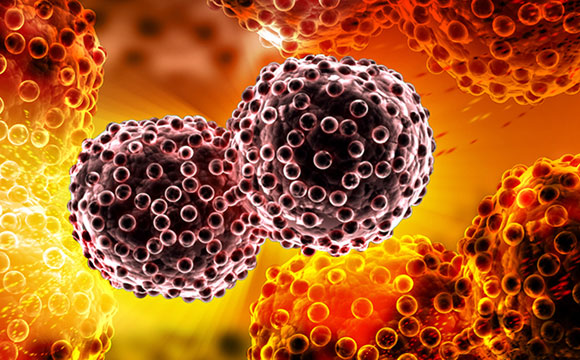
A study on advanced non-small cell lung cancer patients resistant to chemotherapy has identified a promising immune therapy drug commonly used for other cancers.
A newly published study involving patients with advanced non-small cell lung cancer resistant to chemotherapy has found a promising weapon in an immune therapy drug commonly used to treat other cancers.
The findings were published December 19 in The Lancet and presented at the 2015 annual conference of the European Society for Medical Oncology in Singapore.
The study, called KEYNOTE 010, compared pembrolizumab with the chemotherapy drug docetaxel in 1,034 patients with NSCLC whose tumors expressed the PD-L1 biomarker. PD-L1 is a protein expressed by many tumor types that can render the cancer invulnerable to immune attack. The study endpoints were overall survival (OS), progression-free survival (PFS), and safety.
Patients whose tumors expressed even low levels of PD-L1 benefited significantly from pembrolizumab. Patients with tumors that expressed the highest amounts of PD-L1 responded better and lived, on average, twice as long as patients treated with docetaxel alone (14.9 months versus 8.2 months), said senior author Roy S. Herbst, M.D., the Ensign Professor of Medicine and chief of medical oncology at Yale Cancer Center and Smilow Cancer Hospital at Yale-New Haven.
“I believe we should treat patients with the best available drugs as soon as possible. Now that we have learned which patients are most likely to benefit from the anti–PD-L1 strategy, we could begin moving this drug to the earlier setting stages,” Herbst said. “In this direction, I am eager to see the results of ongoing studies testing pembrolizumab in the first-line setting and as an adjuvant after surgery to hopefully reduce high rates of lung cancer recurrence.”
In this study, researchers gave the drug to patients whose tumors had progressed after standard chemotherapy. Herbst said the findings show that pembrolizumab, which caused few significant side effects and was better tolerated than chemotherapy, could be offered earlier to patients with a particular tumor profile.
In October 2015, the Food and Drug Administration granted accelerated approval to pembrolizumab for the treatment of patients with metastatic non-small cell lung cancer (NSCLC) whose tumors express PD-L1 with disease progression on or after platinum-containing chemotherapy.
Reference: “Pembrolizumab versus docetaxel for previously treated, PD-L1-positive, advanced non-small-cell lung cancer (KEYNOTE-010): a randomised controlled trial” by Prof Roy S Herbst, MD; Prof Paul Baas, MD; Dong-Wan Kim, MD; Enriqueta Felip, MD; José L Pérez-Gracia, MD; Prof Ji-Youn Han, MD; Julian Molina, MD; Prof Joo-Hang Kim, MD; Catherine Dubos Arvis, MD; Prof Myung-Ju Ahn, MD; Margarita Majem, MD; Mary J Fidler, MD; Gilberto de Castro Jr, MD; Marcelo Garrido, MD; Gregory M Lubiniecki, MD; Yue Shentu, Ph.D.; Ellie Im, MD; Marisa Dolled-Filhart, Ph.D. and Edward B Garon, MD, 19 December 2015, The Lancet.
DOI: 10.1016/S0140-6736(15)01281-7


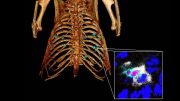



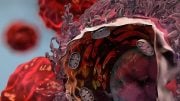
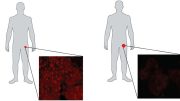
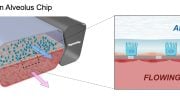
Butthe healthy cells must be protected by a detection marker using ultraviolet polymer float of indium gallium ejectors with medicine.
Butthe healthy cells must be protected by a detection marker using ultraviolet polymer float of indium gallium ejectors with medicine.This requiring a nano detection of unhealthy cells only to populate healthy cells.The medical board also must recommend oxygen generators to lessen the burden of inhaling lungs to dilute catbon dioxide pollution as prevention is better than cure.